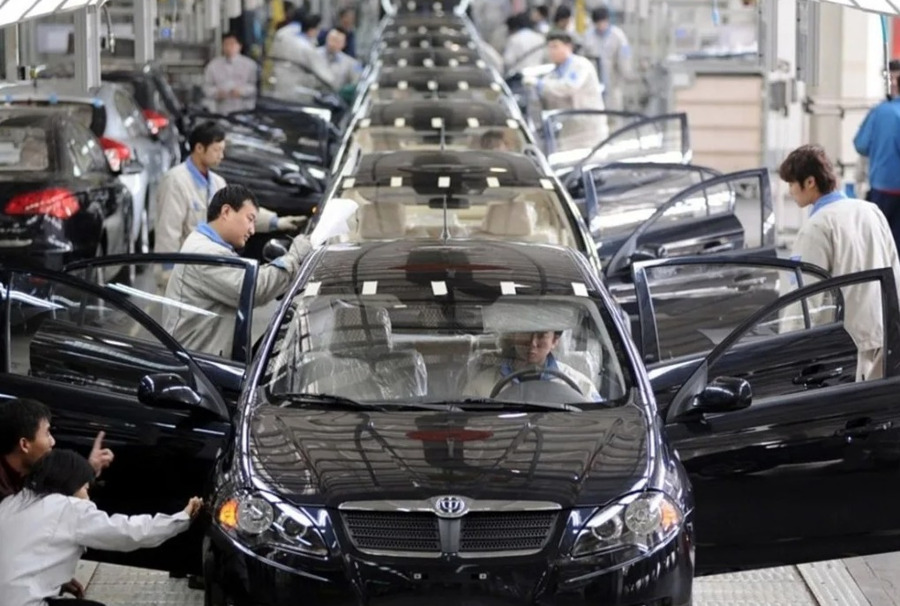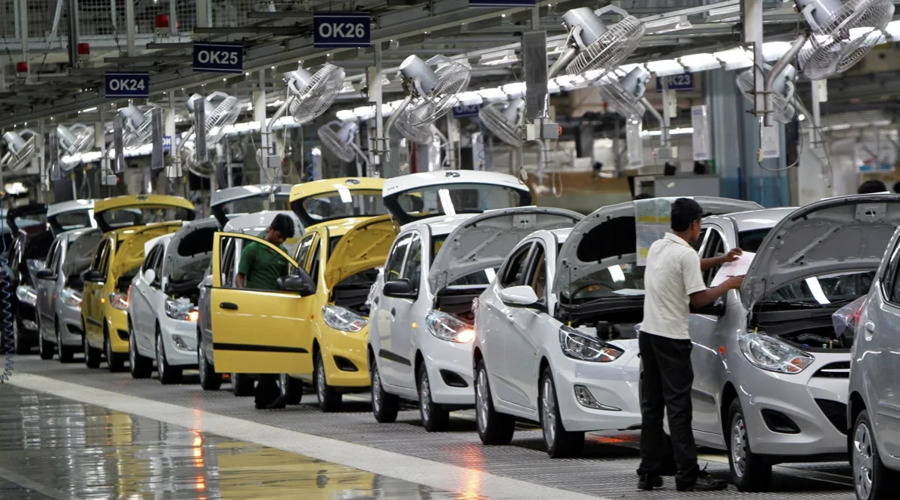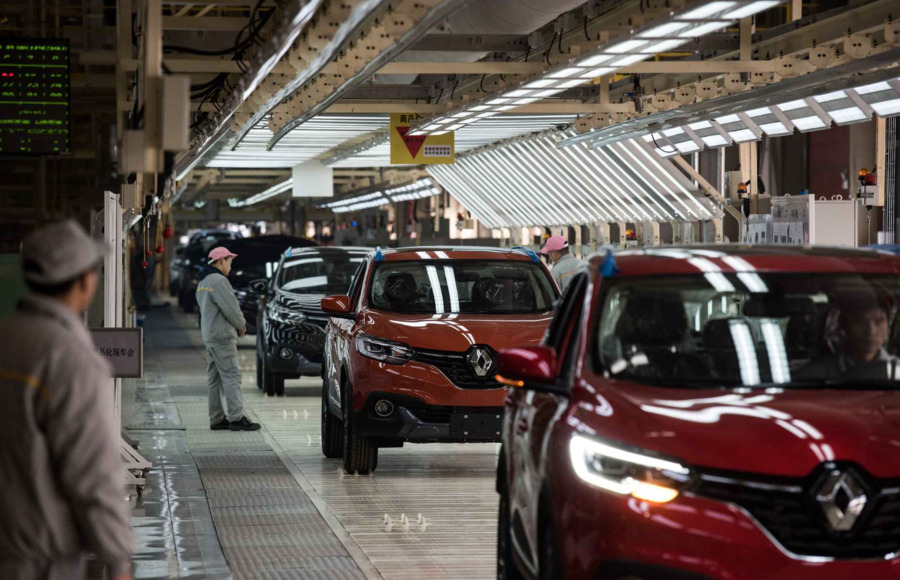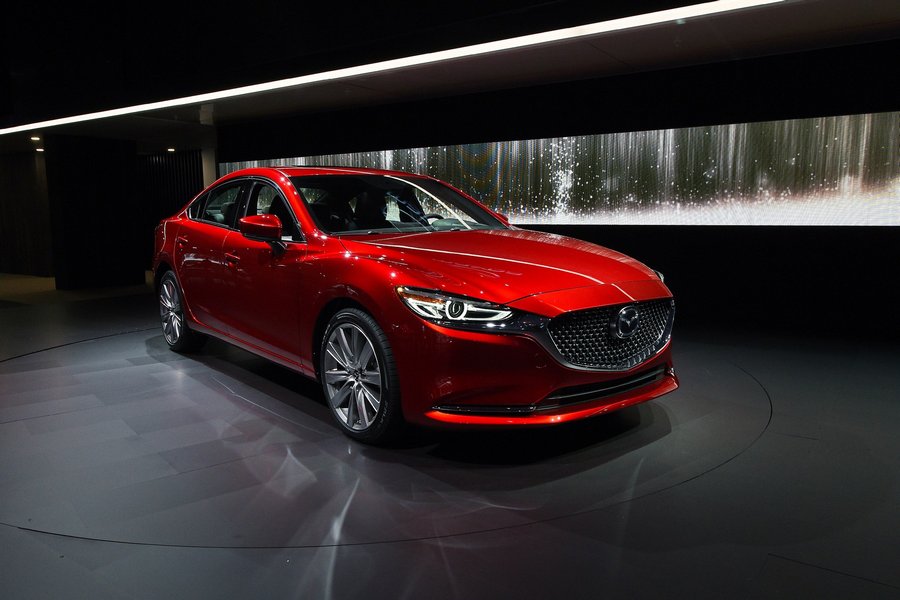Origins and Historical Progression
The Beginnings
The Chinese automotive industry’s journey began modestly in 1931 when Zhang Xueliang established an arsenal capable of producing a single truck, laying the groundwork for future developments. The formal commencement of this industry was marked by the establishment of the First Automotive Works (FAW) on June 15, 1953, in Changchun. This date is historically recognized as the birth of the modern automotive industry in China, setting the stage for the development of a sector that would grow to dominate the global automotive landscape.
Development through Decades
In 1958, the Chinese auto industry achieved a significant milestone with the production of the NJ130 truck at the Nanjing Automobile Factory. This vehicle, based on the Soviet GAZ-51, represented a crucial step in China’s automotive capabilities, showcasing an ability to produce functional and reliable trucks. Following this, the late 1950s and early 1960s saw the establishment of additional auto plants in major Chinese cities such as Shanghai, Jinan, and Beijing. These plants laid the foundation for what would become major industrial and manufacturing hubs in China.
Technological and Industrial Expansion
The 1980s marked a pivotal shift in the Chinese auto industry as it began embracing foreign technologies and investments. The significant increase in Japanese car imports in 1984 and strategic joint ventures with Western automotive giants like American Motors and Volkswagen introduced advanced automotive technologies and manufacturing processes to China. These partnerships were instrumental in modernizing China’s auto industry, enhancing product quality, and expanding production capacity.

Milestones of Growth and Expansion
Rapid Growth and International Collaboration
From the 1990s onwards, China’s automotive industry entered a period of exponential growth. In 1992, the country’s annual car production exceeded one million units for the first time, signaling its emerging prominence in the auto manufacturing sector. The next decade saw production soar past five million units by 2004, with China eventually surpassing Japan in 2009 to become the world’s top automaker. This remarkable growth was fueled by ongoing international collaborations that brought global standards and innovations into the Chinese auto manufacturing processes.
Global Dominance
By 2023, China had not only solidified its position as a leading automaker but also ascended to become the world’s largest car exporter, with exports totaling 4.91 million vehicles. This milestone highlighted the extensive global reach of the Chinese auto industry and its significant impact on international markets. The achievement is a testament to China’s strategic vision and execution in leveraging both domestic and international markets to expand its influence across the global automotive industry.
Major Chinese Auto Manufacturers
SAIC Motor Corporation
SAIC Motor stands as a testament to the Chinese auto industry’s scale and ambition. As the largest automotive manufacturer in China, SAIC not only dominates the domestic market but also has a substantial international presence. It manufactures a wide range of vehicles, including passenger cars, trucks, and buses, under various brand names and through joint ventures with global automotive companies, illustrating China’s integrated approach to automotive manufacturing and sales.
GAC Group
Founded in 1997, GAC Group has quickly ascended to become one of China’s leading automakers, known for its innovation and rapid growth. The company’s significant position in the global market was confirmed by its ranking on the Forbes Global 2000 list. GAC produces a diverse array of vehicles through its own brands and joint ventures, demonstrating the versatility and adaptability of modern Chinese automotive enterprises.
Chery Automobile Co., Ltd.
Chery Automobile has distinguished itself as a key player in China’s strategy to expand its automotive footprint worldwide. Specializing in a range of vehicle types from SUVs to sedans, Chery has effectively penetrated international markets, especially in developing countries, making it a significant ambassador for Chinese automotive engineering abroad.
Established in 1984, Great Wall Motors has focused on producing a variety of vehicles, including highly popular SUVs and trucks. Its dedication to quality and innovation has helped it carve out a significant niche in both domestic and international markets. Great Wall’s diverse brand offerings, such as Haval and ORA, underscore its role in driving forward China’s reputation as a competitive and capable automaker on the global stage.

Chinese Cars on the International Stage and Their Availability in Dubai
Chinese cars have conquered global markets, challenging the well-known European and American brands with their combination of affordability, reliability and innovation. In Dubai, Al Mizan Car Rental offers the opportunity to experience this success first-hand with Chinese cars for rent. Models such as the dynamic Haval Jolyon for 1,285 Dirhams per week, the efficient MG 5 for 885 UAE Dirhams per week and the luxurious Exeed LX for 1,905 Dirhams per week exemplify the sophistication and competitiveness of Chinese cars, and everyone in Dubai can experience this first-hand. This opportunity emphasises the global appeal and technological prowess of Chinese automotive brands, making them accessible to a wide audience.
The Chinese automotive industry’s journey from the early days of assembling basic models to becoming the world’s leading automotive manufacturer and exporter reflects its resilience, innovation and global strategic engagement. This evolution reflects not only China’s industrial growth, but also its growing influence in the global automotive sector.

Baseball fan, risk-taker, band member, Vignelli fan and HTML & CSS lover. Doing at the nexus of aesthetics and purpose to create great work for living breathing human beings. My opinions belong to nobody but myself.


